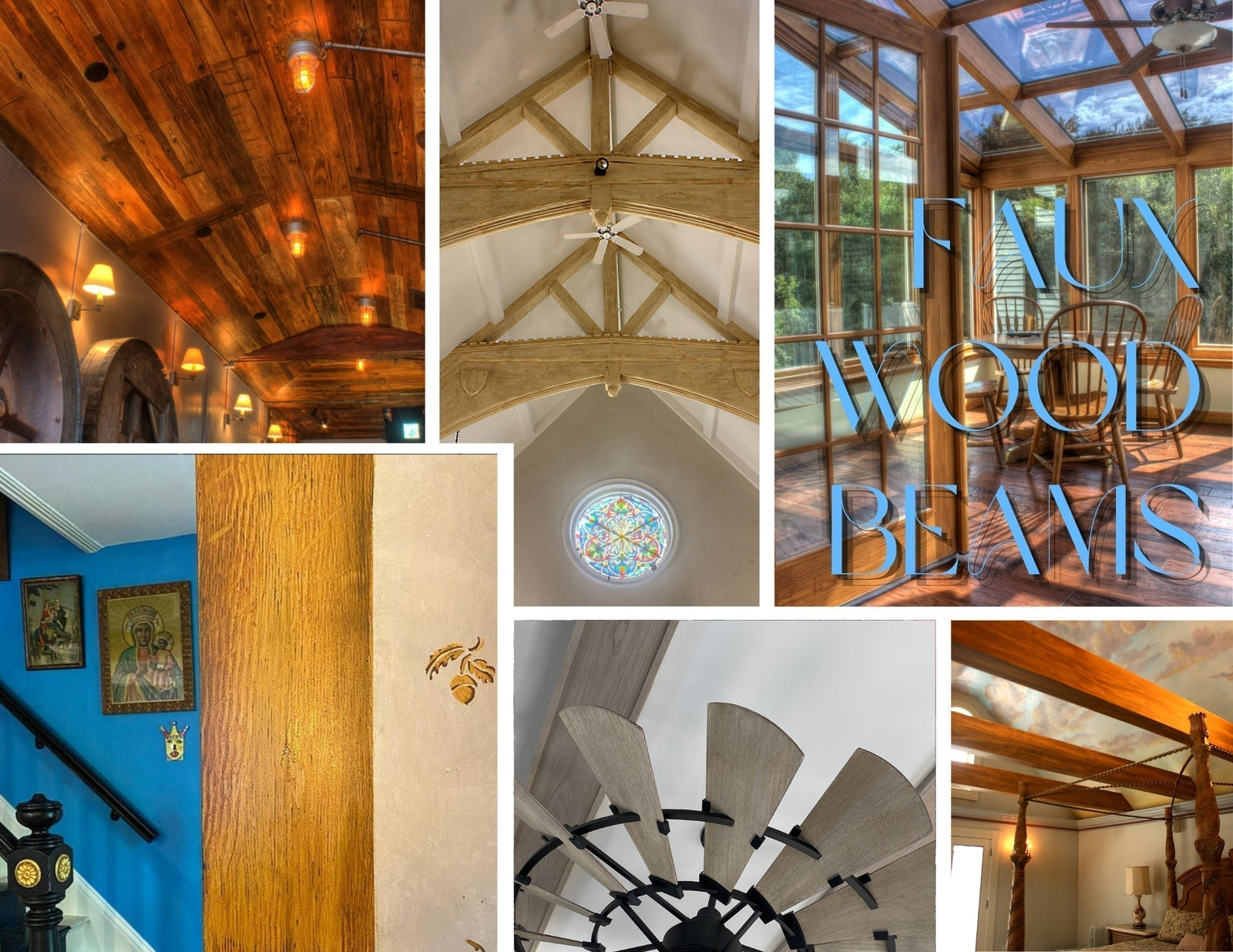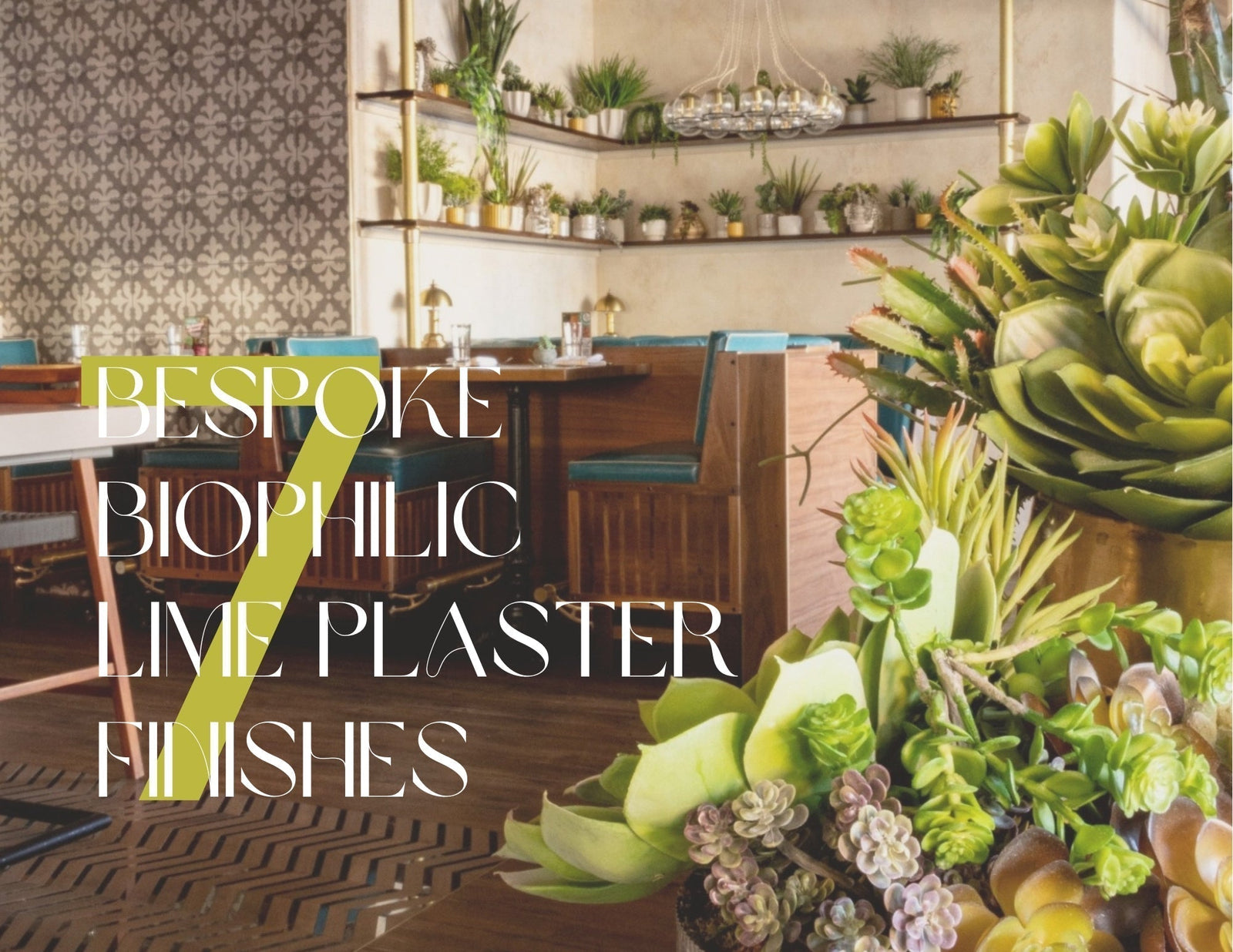The Art of Illusion: Inside the World of the Faux Finish Painter

Introduction: A Renaissance of Surface Beauty
In an era of flat-pack furnishings and digital prints, there is a quiet but powerful renaissance taking place in the world of interiors. It lives in the luminosity of a hand-gilded panel, the whorls of a faux painted burl wood, the patina of a distressed wall finish. At the heart of this revival are the artisans known as faux finish painters.
Faux painters are artists working in decorative arts, using their skills conjuring the feel of real building materials — marble, stone, wood, metals — not by imitation, but by reimagining their essence on architectural surfaces. This is not trompe l’œil, though the illusion is compelling. It is something else entirely: a surface transformation that elevates the character of a space.
What Is a Faux Finish Painter?
A faux finish painter is a decorative artist who specializes in creating illusionistic finishes that mimic the look of luxurious materials such as marble, wood, metal, and stone. These finishes are crafted by hand, using layers of hand-mixed and pigmented paints to evoke the depth and richness of the real thing. Employed to create luxurious, bespoke interiors for interior designers, architects and builders, they combine old-world tradition with innovative and contemporary techniques.




From left to right: Custom faux marble hand-painted decorative painting for boutique’s display wall focal point, Onyx Boutique, Portsmouth, NH, Interior design: Bergmeyer. Historic faux bois decorative finish restoration, Mary Baker Eddy Historic House Longyear Museum, Chestnut Hill, MA, General Contractors; Consigli Construction. Trompe l’oeil exterior faux stone edging is painted to transform plain concrete foundation, private residence. Faux corroded metal decorative paint finish panels for rustic motif at Legal Sea Foods – Harborside, Boston Seaport, MA
Tradition Meets Innovation: Reinventing the Faux
Faux finishing has ancient roots. Roman frescoes, French chateaux, and Venetian palazzos all boast centuries-old examples of painted illusions. But today's faux painter is anything but traditional in the conventional sense. Yes, they honor the lineage of their craft, but they also step boldly into the modern age, combining faux finishes with metallics, iridescents, and contemporary textures to create striking, unexpected results.
Think a smoky black wall with hints of bronze veining that suggests stone but moves like silk. Or a faux tortoise shell ceiling that glows softly under ambient light, bringing both vintage charm and futuristic edge. These finishes are not imitations; they are reinventions. They play with perception and engage the senses.



The Discipline Behind the Drama
To the uninitiated, a faux finish might seem like magic. But for the artisan, it is the result of years — often decades — of disciplined practice, repetition, and refinement. Faux finishing is not simply painting; it is alchemy. It demands an intimate understanding of materials, chemistry, color theory, and architectural context. A single wall might require several layers of transparent glaze, each applied with a different tool or method. Every finish tells a story, and every story is built with patience.
Apprenticeships are long. Tools are specific. Pigments must be mixed by hand. And the learning never stops. There are no shortcuts to mastery, although mastery creates efficiency and value engineering. New surfaces, new sheens, new techniques continually evolve the craft.


Outside the Box: Inventive Finishes for Bold Interiors
One of the most thrilling aspects of contemporary faux finishing is its embrace of the unexpected. Beyond traditional faux bois and faux marble, today’s artisans are dreaming up finishes that defy classification.
Take faux burl wood, for instance: a swirled, hypnotic finish that mimics the rare and highly prized grain of certain trees. Or faux tortoise shell, with its deep caramel tones and mottled translucency. These are not surfaces you see every day. They are rare, indulgent, and almost decadent in their effect.
Other finishes riff on industrial materials: oxidized copper, burnished steel, concrete with a velvet softness. By combining faux techniques with metallic leaf, mica powders, or textured plasters, painters can create an effect that is part fantasy, part architectural realism. These finishes add a layer of drama that you simply can’t get from wallpaper or flat paint.




From left to right: Faux tortoise shell ceiling paint finish work in progress to finished look. Faux weathered copper verdigris column finish, Fiorella's Trattoria, Wellesly, MA. Faux finished PVC pipes to mimic weathered ship masts, East Boston, MA, Interior design: Amy Margolis Design.
Not Just a Surface: The Difference Between Faux and Flat
It’s important to understand that a faux finish is not a flat, two-dimensional rendering of something three-dimensional. It is a surface. It has movement, tactility, and depth. Run your hand across it, and you might feel the whisper of a brushstroke, the smooth slide of a burnished layer, the crisp edge of a glaze line.
In a world that often privileges the digital and disposable, faux finish painting reintroduces the handmade, the lasting, the soulful. It connects spaces to tradition while infusing them with contemporary sophistication.



How to Spot a Faux Painter in the Wild
If you ever find yourself in a high-end interior that radiates quiet opulence — walls that seem to glow, columns that gleam like ancient bronze, ceilings with depth and mystery — look around. There is likely a faux painter behind the magic.
And if you see someone at the cafe with shoes splattered in multi-colors of paint, there’s a good chance you’ve spotted an artisan on her coffee break (do not stare!). The shoes are the giveaway. Faux painters don’t wear berets. They wear their work, quite literally, on their sleeves.


Why Designers Are Turning Back to the Handcrafted
Interior designers working in high-end residential, boutique hospitality, and luxury retail are increasingly seeking out faux finish painters. Why? Because clients want something singular. Something with a story. Something no one else has.
A custom faux finish offers that. It is both architecture and art. It can unify a space or offer a bold moment of contrast or suggest a specific time period. It can be subtle or sensational. And it is always bespoke.
These finishes add emotional value. They make a space feel considered, cultivated, cared for. In a landscape that is increasingly about experience, faux artistry delivers a deeply sensory one.




A Final Word: The New Layer of Luxury
Faux finishing is not about fakery; it is the art of illusion, where craftsmanship and creativity meet to render the designer’s vision.
For those who know, faux finishes are not just an option — they are a signature. They speak of sophistication and unique accents of personalization. They reflect centuries-old traditions reborn in modern palettes. And they remind us that true luxury comes with slow artistry.
In the hands of a master faux finish painter, a surface becomes a story. And that story is written in mediums of light, shadow, color, and in the soul of the space itself.

See more faux finish painting on our gallery page.
Also in News

Mist Over Bay State Woodlands: A Custom Panoramic Wall Mural for a Historic New England Farmhouse
Mist Over Bay State Woodlands, a custom landscape mural, is a daily reminder of the beauty and mystery of New England’s wooded landscapes. By merging historic inspiration with artisanal technique, we created an environment that reflects our clients’ love of nature and heritage with bespoke wall finishes.


